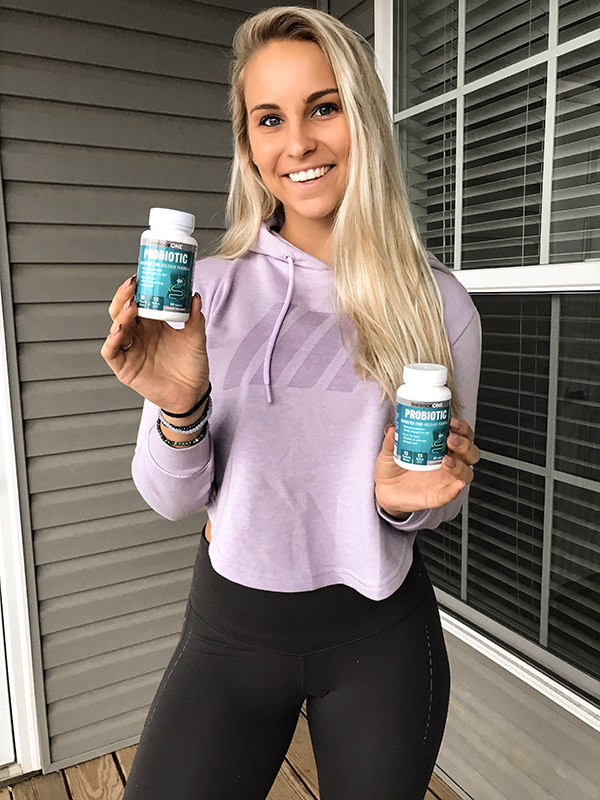5 Proven Ways to Calm Acid Reflux Without Antacids
Acid reflux can turn meals into hours of discomfort. Antacids may bring quick relief, but over time they can disrupt your natural stomach acid levels, making digestion weaker and potentially worsening reflux.
The good news? You can take steps to address the root causes of acid reflux naturally. These 5 proven strategies can help soothe your digestive system, reduce flare-ups, and promote long-term gut health—without reaching for antacids.

1. Eat Smaller, Balanced Meals
When you eat large meals, your stomach expands and puts pressure on the lower esophageal sphincter (LES)—the muscle that keeps stomach acid where it belongs.
Try eating smaller, more balanced meals throughout the day. Focus on nutrient-rich foods that are easier to digest, and avoid lying down immediately after eating.
Even simple changes like eating slower or adding an extra smaller meal to your day can make a big difference.
2. Identify and Avoid Trigger Foods
Certain foods are more likely to cause acid reflux than others. Spicy dishes, fried foods, citrus fruits, tomatoes, onions, chocolate, and caffeine are some of the most common culprits.
The tricky part? Everyone’s triggers are different. Keep a “reflux journal” to track which foods or drinks set off your symptoms.


3. Improve Your Gut Health with Probiotics
Researchers know that that poor gut health can make acid reflux worse. An imbalance of bacteria in the digestive system can disrupt digestion, slow gastric emptying, and increase the pressure that leads to reflux.
This is where probiotics can help. These beneficial bacteria restore balance in your gut, support smoother digestion, and reduce bloating—one of the biggest contributors to reflux.
Look for a time-release probiotic for maximum effectiveness. This steady release helps your gut regain balance, reducing the root causes of acid reflux rather than just covering up symptoms.
Tired of Treating the Symptoms Instead of the Cause?
Antacids and reflux meds only mask the problem. But if your reflux stems from gut imbalance, there’s a better way to fix it.
Our time-release probiotic helps restore healthy digestion, reduce acid buildup, and calm reflux—naturally and gently.
Used by over 100,000 customers to support their digestive health.
4. Elevate Your Head While Sleeping
If you often wake up with heartburn, your sleeping position may be to blame. Lying flat allows acid to flow more easily from the stomach into the esophagus, especially if you’ve eaten late.
Try elevating the head of your bed by 6–8 inches or using a wedge pillow. Even small changes in your sleeping angle can prevent acid from rising and give your body time to heal overnight.


5. Manage Stress and Relax Your Body
Stress doesn’t just affect your mind—it impacts your digestion too. When you’re stressed, your body produces hormones that can increase acid production and slow digestion, leading to more frequent reflux episodes.
Incorporate stress-reducing habits like deep breathing, yoga, light exercise, or a short walk after meals. Even taking 10 minutes a day to unwind can calm your digestive system and reduce reflux symptoms.
Ready to put these tips into action? Here’s the simplest way to get started.
"Love this probiotic! It truly has been a life saver for me... I no longer suffer from acid reflux or constant diarrhea or gas." — Jane J, verified customer

Support Your Gut. Stop the Reflux.
Our time-release probiotic targets the root cause of reflux—gut imbalance.
Just one tablet a day to feel lighter, calmer, and more in control.
This isn’t just another probiotic. It’s a time-release formula designed to help reduce acid buildup, calm reflux, and restore long-term gut balance—without the side effects of antacids or PPIs.
Daily Gut Support: Helps reduce bloating, ease reflux, and restore balance
Advanced Formula: 12 targeted strains, 15 billion CFUs, and time-release delivery for all-day effectiveness
Trusted Quality: Vegan, non-GMO, and third-party tested for purity and safety
What People Are Saying
Research
1. Zou, Y., Xue, W., Luo, G., Deng, Z., Qin, P., Guo, R., & Su, W. (2019). Effect of probiotics on gastrointestinal motility: A systematic review and meta-analysis. Journal of Neurogastroenterology and Motility, 25(4), 486–500. https://doi.org/10.5056/jnm19105
2. Pinzone, M. R., Celesia, B. M., Di Rosa, M., Caminiti, F., Coco, C., Nunnari, G., & Cacopardo, B. (2016). Effect of a probiotic supplement on symptoms in patients with gastroesophageal reflux disease: A randomized clinical trial. Clinical and Experimental Gastroenterology, 9, 151–157. https://doi.org/10.2147/CEG.S100769
3. Gibson, G. R., & Roberfroid, M. B. (1995). Dietary modulation of the human colonic microbiota: Introducing the concept of prebiotics. The Journal of Nutrition, 125(6), 1401–1412. https://doi.org/10.1093/jn/125.6.1401
4. Imhann, F., Vich Vila, A., Bonder, M. J., Fu, J., Gevers, D., Visschedijk, M. C., ... & Weersma, R. K. (2016). Proton pump inhibitors affect the gut microbiome. Gut, 65(5), 740–748. https://doi.org/10.1136/gutjnl-2015-310376
5. Freedberg, D. E., Toussaint, N. C., Chen, S. P., Ratner, A. J., Whittier, S., Wang, T. C., ... & Abrams, J. A. (2015). Proton pump inhibitors alter specific taxa in the human gastrointestinal microbiome: A crossover trial. Gastroenterology, 149(4), 883–885.e9. https://doi.org/10.1053/j.gastro.2015.06.043
6. Tursi, A., Brandimarte, G., Elisei, W., Giorgetti, G. M., Inchingolo, C. D., & Aiello, F. (2007). Effect of probiotic supplementation on the occurrence of small intestinal bacterial overgrowth in patients treated with omeprazole: A pilot study. European Review for Medical and Pharmacological Sciences, 11(1), 33–38.
7. Ringel, Y., Ringel-Kulka, T., Maier, D., Carroll, I., Galanko, J., & Leyer, G. (2015). Probiotic supplementation in patients with GERD: A randomized, double-blind, placebo-controlled pilot study. Neurogastroenterology and Motility, 27(12), 1792–1800. https://doi.org/10.1111/nmo.12697